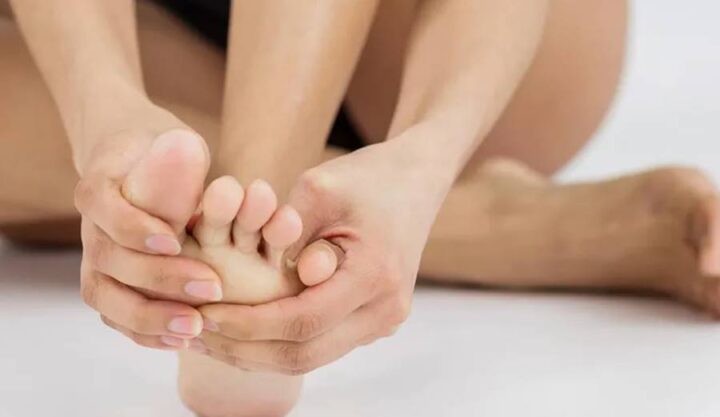
These conditions can be behind itchy feet
When itching on the feet, many people first think of athlete’s foot. But the stubborn fungal infection is not always to blame if you have to constantly scratch your foot.
Sometimes the soles just need a little care. Allergies, overexertion and circulatory disorders can also be to blame for the nasty itching.
Dry and sore skin is one of the most common causes of itchy feet. The skin becomes sensitive, tiny cracks and inflammation may have formed. If the feet sweat, the skin is additionally attacked by the excreted salts.
Dry skin often makes feet itchy
The nerve fibers then react irritated. Various messenger substances on the skin, including histamine, increase this effect. The body forms these messenger substances, among other things, in the course of the immune system. So itching is always an indication that the body is on alert. Atopic dermatitis and eczema also form dry areas of skin that itch uncomfortably.
Urea and panthenol care for dry skin areas
Nourishing creams, such as those with urea and panthenol, provide the skin with moisture, support the skin’s ability to bind water and promote healing. In the case of acute itching, an ointment containing a little cortisone can also help. Natural oils provide the fat supply and keep the skin supple. If the itching persists despite intensive foot care, you should continue to investigate the cause.
If you have itchy feet, think about an allergy
For example, allergies can cause itchy feet. Triggers are often certain ingredients in a foot cream, such as preservatives or fragrances. A new detergent, fabric softener, foot deodorant or shower gel can also promote the skin reaction. Food and medication are also possible. An allergy test by a dermatologist can provide clarity.
Itchy feet from metabolic disorders
Metabolic disorders such as gout and diabetes mellitus are also among the factors that cause itching. Many diabetics know the problem: high blood sugar levels promote dry skin. In addition, diabetics generally have an increased risk of infection on their feet. Nerve damage can also occur as the disease progresses.
Many feet react to mechanical stimuli with itching
Many athletes are also familiar with itchy feet. The nerves on the feet often react irritated to the friction from socks and shoes as well as to the high temperatures and sweating in sports shoes. In addition, when the feet are under heavy strain, calluses and dry skin areas easily form, which also promote itching. Cooling foot baths with essential oils such as peppermint or tea tree oil provide relief. Then apply lotion to your feet and let them “breathe”, so don’t slip into your socks and shoes right away.
Suspicion of athlete’s foot? Check the spaces between the toes
If you suffer from itchy feet, you should take a closer look at the spaces between your toes. Athlete’s foot often shows up first in the area of the little toe with redness and scaling. Many people mistakenly think of dry skin. Sometimes small blisters also appear. A swab from the dermatologist shows whether a fungal infection is behind the itching.
Diseased liver can cause itching
Other possible causes of the itching include liver, gallbladder, and kidney disease. Then the symptoms often increase in the evening hours. Hormonal changes and stress, but also iron and zinc deficiencies as well as neurological diseases often cause the skin to itch. Thyroid disorders are also a possible trigger. If the symptoms do not subside, you should always consult a doctor in order to rule out serious illnesses or to be able to identify them as early as possible.
Categories: General
